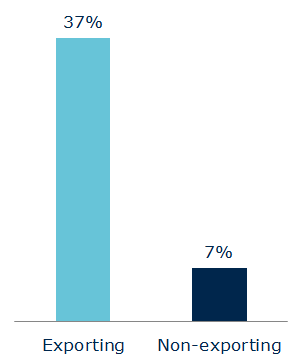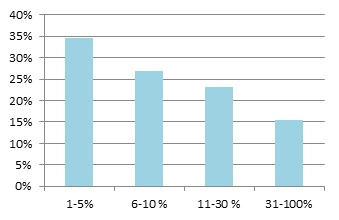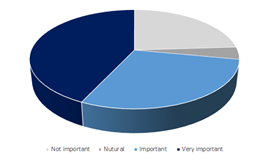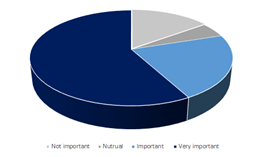New European Sales Strategies
The indication and long-term trend post COVID-19 is internationalization with a focus on Europe. Market entry strategies will make a shift. Hiring local managers will continue to be the number one option followed by setting up a subsidiary. Upgrading business strategies will be necessary to keep up with the economic/social developments and ensure maximal use of our new reality in the world of international business development. The information shared in this article is gathered from and applies to North American small- and medium-sized organizations who are supplying added value products in the EU.
The world is changing around us. Within Europe, international business and tradeshows are starting up, but there is still an intercontinental lock down. Covid-19 will disappear with ups and downs, but it magnified trends that will impact international business for the long term; (1) political populism has been feeding chauvinism and that influences free trade, (2) the European economy is in recession, and in Europe an average GDP decline is expected of around 8%, (3) social developments, such as flexible employment, work-life balance, acceptance of digital communication, and environmental awareness will have their impact on how we work, meet and travel.
Besides the strategic considerations of being an exporting organization, diversity of market and client base, and the necessity of having a global presence, the importance of the EU for North American companies is presented by the following numbers.
Revenue growth (over 5 years)
EU Revenue as part of total revenue (2019)


Source: (Taylor and Francis (2007), Creal et al. (2011), Brookings (2011), (Clients EuroDev, June 2020)
Pre-Covid-19 internationalization strategies ranked by importance
- Locally hired managers
- Alliances with distributors
- Direct exporting
- Own sales office
- Subsidiaries
Source: (Prater and Ghosh, 2005)
How important is the EU zone compared to overall export?

Source: (Clients EuroDev, June 2020)
Has the EU become more or less important after COVID 19?

Source: (Clients EuroDev, June 2020)
Post-Covid-19 internationalization strategies ranked by importance
Locally hired management will remain the most used strategy.
The old-style solution would be hiring a seasoned European manager with a “rolodex” who will stay the remainder of his/her career. It is still a good and proven option but with the availability of talent, more flexible employment opportunities, and an increasing transparency of the employment market, locally hired managers for specific situations becomes more attractive. Cloud based platforms that integrate external teams (by market segment, territory or product line) in your own organization support new ways of working. In this case, it is important that you have management at HQ who have experience building and managing these types of teams. European-wide PEO and HRO solutions guarantee compliance with local legislation.
Sales & Service offices could unite the best of the old and new world
(wholly owned company, management by a North American HQ). The runner up is the sales and service office. You have the bricks and mortar and are considered a local player with local service and support. You are covered with the major three impacts as described earlier in this article. Being managed directly from North America, you have significant cost savings on overhead, and integration of the organizations has the highest chance for success. This option is more suitable for smaller European operations and is still a relatively agile solution compared to setting up a subsidiary.
Subsidiaries could become the old way if they are not able to adjust
(wholly owned company with local management). This strategy has been for a long time the best solution for organizations that are aiming for a serious market segment and need long term continuity in a foreign market. With local management you solve the cultural and knowledge aspects and keep grip on your business to stay fully in control. Local sentiments and international restrictions are often neutralized if you have a local/regional settlement. The downside is that subsidiaries can start living their own life where in a new economy, new full integration of organizations is preferable.
Alliances with distributors are under pressure
Alliances with distributors are under pressure in the B2B market. North American SME exporters are known for quality, flexibility, engineering, reliability, service and support. A distributor in the middle can complicate the after-sale process and take away factors like agility, control and margin which are necessary in the new economy. We do see a development of small (1-3 persons), low overhead distributors that take a role similar to the US sales representative structure. Provided you can integrate them into your own sales and marketing platforms, they could be your best option for smaller territories.
Direct exporting is expected to lose its attraction
Being an outsider with no boots on the ground and facing intensive long-distance traveling will become more difficult in the new economy. New developments with systems and communication seem to create chances but the classic obstacles of international business, such as language, culture, time zones, and lacking local experience/knowledge are still valid and are becoming a bigger issue under the current developments. While traveling is enjoyable for personal vacation, business traveling and being 50% in the air raises social and environmental considerations with the younger generations.
Digital marketing is an upcoming channel in the B2B arena
For specific market segments, it can be successful as a stand-alone channel but in most occasions, a multi-channel approach is necessary. In particular for North American businesses that are well recognized in their home market but still need to build their brand in EU, DM is an effective tool to pave the way and generate initial leads. Localization of your message is a must, and just changing a language will not work.

We do see the following opportunities for North American companies.
- Europe and North American economies need each other to pull themselves out of the global crises. Politicians do recognize it and will support it (after their rhetoric).
- Use the flexibility of the employment market. Make sure you select the right country and use the right structure (France and Greece are still not your best options). Use the current availability of talent.
- No disruption. Adjustment of strategy is necessary to anticipate on the new reality and maximize new opportunities.
In case you would like to have more information from one of our experts, do not hesitate to connect with us by clicking below image:
About EuroDev
EuroDev, established in 1996 with offices in The Netherlands and France, has a single, defined purpose to help mid-sized North American companies expand their business in Europe. We have created a proven, successful business development model and since our founding, have partnered with over 300 companies to help them define and meet their European business goals. Services provided include Sales Outsourcing, HR Outsourcing and Digital Marketing.
Category
Related articles
-

The Employment Relations Act: Changes to the flexible working regime
Last updated: 19 December 2023Explore changes in flexible working regulations with the Employment Relations Act. EuroDev guides...
Read more -

Policy Updates: Adapting HR Practices to New Parental Protection Laws
Last updated: 19 December 2023Explore the latest insights on parental protection laws, ensuring compliance and fostering a...
Read more -

New EU Regulations: The EU’s Platform Economy Regulations
Last updated: 8 November 2023EU's new rules for platform workers: enhanced rights, data privacy, and AI transparency. Global...
Read more

